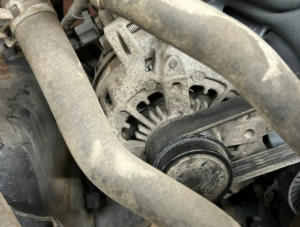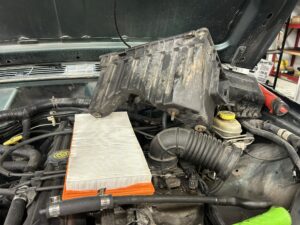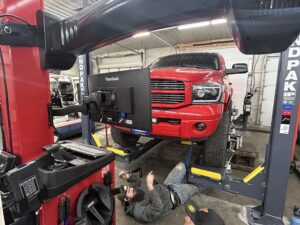Ensuring Your Vehicle’s Electrical System is Running Smoothly
Maintaining your vehicle’s alternator is essential for keeping your car, truck, or SUV running smoothly. This often-overlooked component plays a critical role in charging your battery and powering your vehicle’s electrical system while the engine is running. Understanding the signs of alternator trouble can help you avoid unexpected breakdowns and ensure your vehicle remains reliable, whether you’re commuting, running errands, or taking a road trip.

Signs Your Alternator May Need Attention
Dashboard Warnings: One of the first signs of alternator trouble is the appearance of dashboard warning lights, such as the battery or check engine light. These lights often indicate that the alternator is struggling to supply power or charge the battery properly.
Fluctuating Lights: If your headlights or dashboard lights flicker, dim, or become unusually bright, this could be a sign that the alternator is failing to provide a steady power supply, affecting the consistency of your vehicle’s electrical system.
Battery Problems: A battery that constantly needs to be jump-started or a new battery that fails prematurely could be a sign of a bad alternator. The alternator is responsible for recharging the battery, so if it’s not working correctly, the battery’s power reserve can quickly run out.
Unusual Noises: Listen for grinding or whining sounds from under the hood. These noises could indicate that the alternator’s internal components, such as bearings, are wearing out or failing.
Electrical System Malfunctions: If your vehicle’s electronic systems, such as the infotainment system, power windows, or air conditioning, are acting erratically or losing power, it may be a result of an unreliable alternator struggling to distribute consistent power.
Burnt Odors: A smell of burning rubber could be a sign that the belt on the alternator pulley is slipping. A burning wire odor might indicate that the alternator is overheating and causing damage to your vehicle’s wiring.
Take Action Before You’re Stranded
Spotting these warning signs early can help prevent more serious issues down the road. If you notice any of these symptoms, it’s wise to schedule an inspection with a trusted mechanic as soon as possible. Catching alternator problems before they worsen ensures your vehicle stays safe, dependable, and ready for whatever your daily drive requires.
FAQ
Q: How often should I have my vehicle’s alternator checked? A: It’s recommended to have your alternator inspected annually or whenever you notice signs of electrical system issues.
Q: Can a failing alternator affect other parts of my vehicle? A: Yes, a malfunctioning alternator can impact various vehicle systems, including engine performance and fuel efficiency, by disrupting the power supply.
Q: What should I do if my dashboard warning lights indicate alternator trouble? A: If you see warning lights related to the alternator, reduce electrical usage (e.g., turn off non-essential features) and have your alternator checked by a professional to avoid further damage.
By staying proactive and addressing any alternator issues early, you can maintain your vehicle’s reliability and keep it running smoothly for the long haul. Keep this guide handy to help spot the early warning signs and take action before you’re caught off guard.



